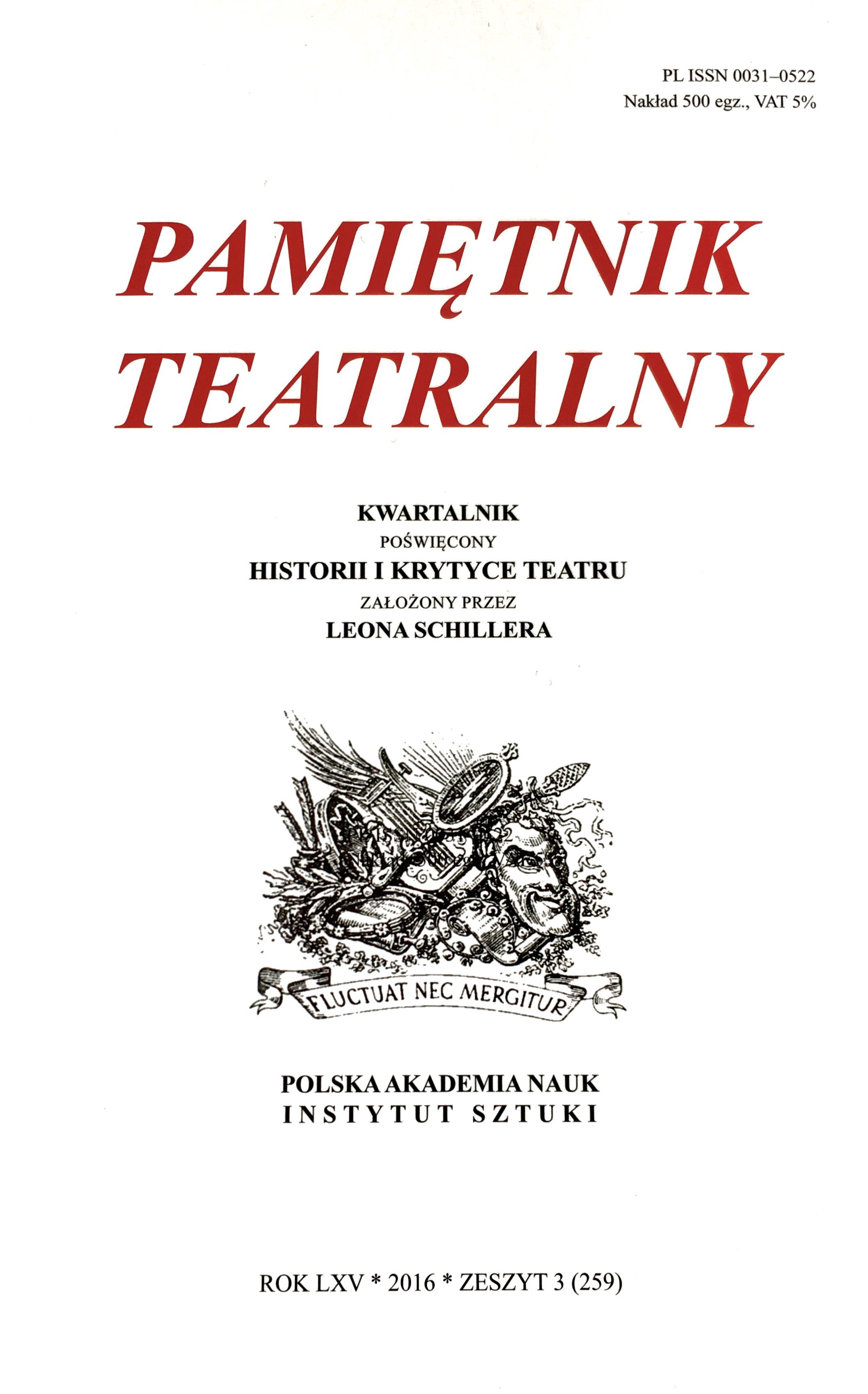„Zabawa złożona ze wszystkich, jakich teatr dostarczyć
może”
"An Entertainment Which Should Comprise All That the Stage Can Furnish”
Les Amants magnifique—Miłość wspaniała
Author(s): Patryk KenckiSubject(s): Theatre, Dance, Performing Arts
Published by: Instytut Sztuki Polskiej Akademii Nauk
Keywords: Moliere;translating culture;metatheatre
Summary/Abstract: We present an edition of Molière’s Les Amants magnifique as rendered in Polish by Duchess Franciszka Urszula Radziwiłłowa. The manuscript version of the paraphrase is titled Miłość wspaniała, whereas the eighteenth-century printed editions bear the title Przejźrzane nie mija. As the drama employs a play within a play device, the introduction to the edition discusses some issues regarding the phenomenon of metatheatricality. First of all, it presents some key proposals of understanding it, going back to the classifications advanced by Tadeusz Kowzan and the system devised by Sławomir Świątek on the basis of a theory of communication. The editor has thought it pertinent to advance his own proposition of tackling metatheatre that will enable us to analyse the phenomenon not only in reference to drama alone, but also in reference to theatrical performances. Starting with the assumption that the theatre performance is an artificial reality where there is an innate tension between reality and the imaginary convention, he distinguishes four aspects that pertain to metatheatricality. They are as follows: separation of a play within the play from the performance as a whole; transgression consisting in playing with the limits of the spectacle; two-way identification of the actor and the character being portrayed; and finally, absorption of the macrocosm of the world into the microcosm of the spectacle. Thus, the present publication of the text by Molière in Radziwiłłowa’s translation and adaptation gives us a chance to analyse the play itself as well as its 1749 performance at Nieśwież, where the Radziwiłłs had their private court theatre. Deployment of the above-mentioned conceptual tools enables us to better understand the purpose for which the Duchess utilised the metatheatrical devices proffered by Molière. It turns out that they were used to present the reality as being a kind of theatrum vitae humanae, on the stage of which the man is being tested. And although his progress is frustrated by various illusions and traps set up by others, by holding on to his virtue (to love, in particular) he is nonetheless able to act in accordance with his destiny, governed by Divine Providence.
Journal: Pamiętnik Teatralny
- Issue Year: 259/2016
- Issue No: 3
- Page Range: 25-44
- Page Count: 20
- Language: Polish

